You are here
New Releases
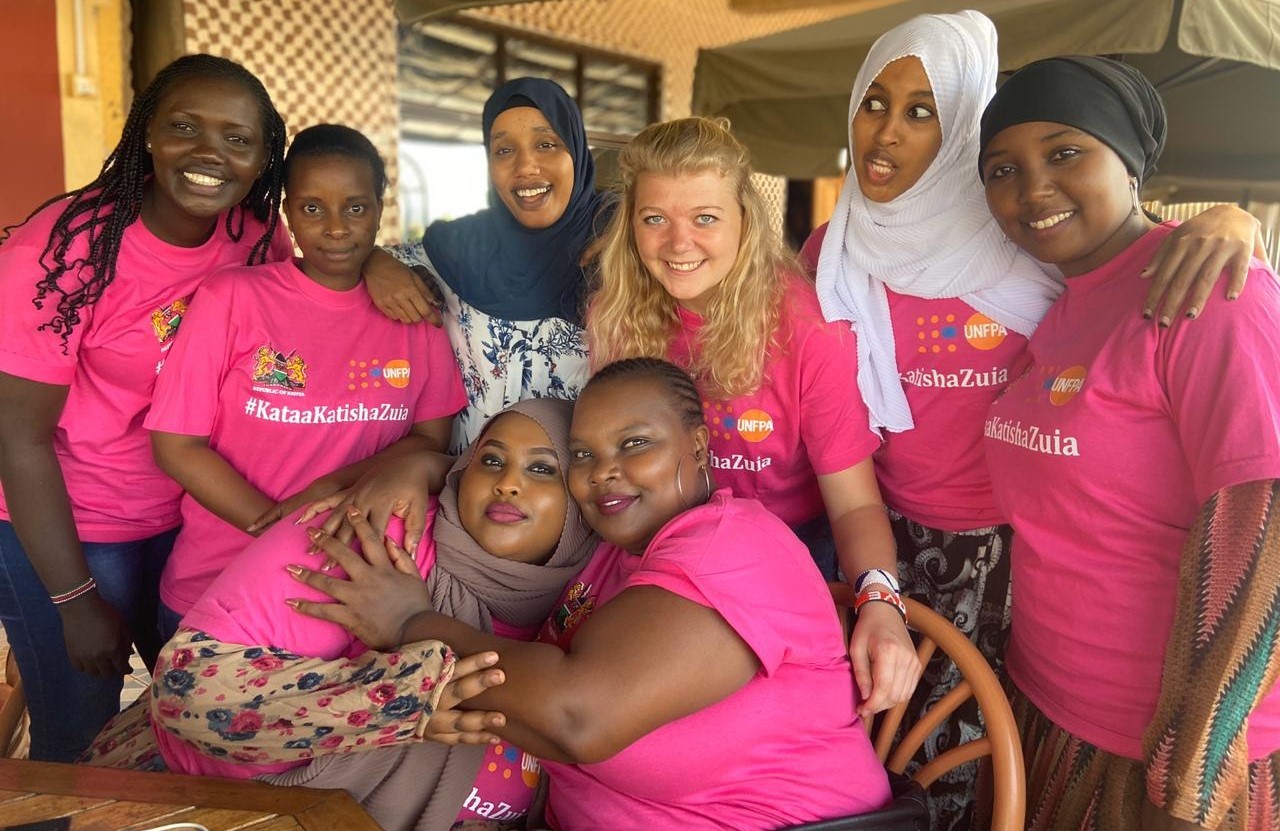
ACCELERATE THE ELIMINATION OF FEMALE GENITAL MUTILATION IN AFRICA BY 2030
LET US LISTEN, SUPPORT AND INVEST IN OUR YOUTH TO ACCELERATE THE ELIMINATION OF FEMALE GENITAL MUTILATION IN AFRICA BY 2030
H.E UHURU KENYATTA, CGH, PRESIDENT OF THE REPUBLIC OF KENYA
DR. NATALIA KANEM, UN UNDER-SECRETARY-GENERAL AND EXECUTIVE DIRECTOR OF THE UNITED NATIONS POPULATION FUND (UNFPA)
Female Genital Mutilation is one of the most horrific human rights violations imaginable that negatively affects the health, education and overall development of women and girls. With 200 million women and girls affected, ending this harmful practice is an urgent moral imperative that we cannot afford to ignore.
Although we have made tangible progress in the 25 years since the International Conference on Population and Development (ICPD) in Cairo, where countries agreed to end the practice everywhere, we are currently facing headwinds. In the places where it is most prevalent, Female Genital Mutilation is declining but not at the speed and scale that is required to meet global commitments. However, these same countries are experiencing high rates of population growth – meaning that if the practice persists at current levels, the number of girls affected as a whole would continue to grow, while they continue to grapple, within some ethnic groups with persistent social norms and cross border propagation of the practice.
Indeed, the United Nations projects that the population of young people in the world's least-developed countries – among the places where Female Genital Mutilation is most commonly practiced – will jump to 62 per cent by 2050. These trends are leaving more girls vulnerable than ever before. In 2019 alone, more than 4 million girls were victims of female genital mutilation, and if urgent action is not taken, up to 68 million could be subjected to the practice by 2030.
So how can we accelerate much-needed progress by the end of the decade? How can we truly turn this into a decade of action where we accelerate sustainable solutions? The answer is simple and straightforward: we must listen to, support and invest in young people.
Africa must leverage the power of youth in high-risk countries, where support for Female Genital Mutilation among people aged 15 to 19 is much lower than among those aged 45 to 49. Increasingly, young girls are growing up with a much higher chance of remaining intact compared to their mothers and grandmothers. This new generation can champion a global movement, transforming traditional norms and inspiring their peers to stand up to their elders by saying no to this form of gender-based violence.
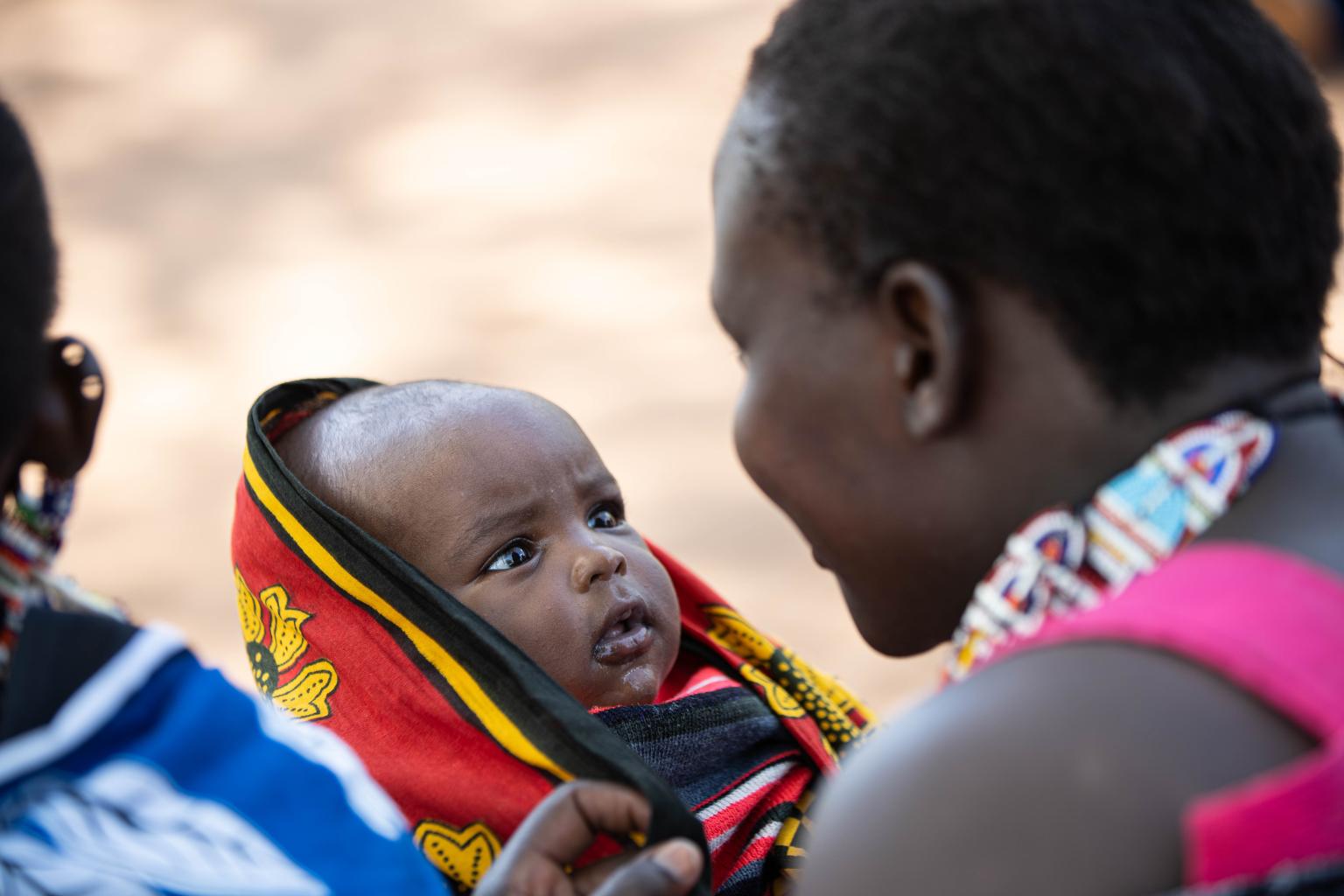
ICPD25 CONVERSATION IN KAKUMA
This year marks the 25th anniversary of the ground breaking International Conference on Population and
Development (ICPD), which took place in Cairo in 1994. Therein, 179 world leaders adopted a Programme of
Action (POA) which recognized that reproductive health, women's empowerment and gender equality are
roadmaps to sustainable development. Between 12th and 14th November 2019, the Government of Kenya (GOK),
the Government of Denmark and UNFPA will convene the Nairobi Summit, a high-level international conference
convened to advance the implementation of the ICPD POA.
As a pre-cursor to the Nairobi Summit, the Government of Kenya through the Refugee Affairs Secretariat (RAS),
United Nations Population Fund (UNFPA), United Nations High Commissioner for Refugees (UNHCR), the
Kenya Red Cross Society (KRCS), International Rescue Committee (IRC) and Danish Refugee Council (DRC),
hosted an event entitled, ‘What's Changed?’ at Kakuma Refugee Camp, to highlight the successes and gaps in
implementing the ICPD PoA in a humanitarian context.
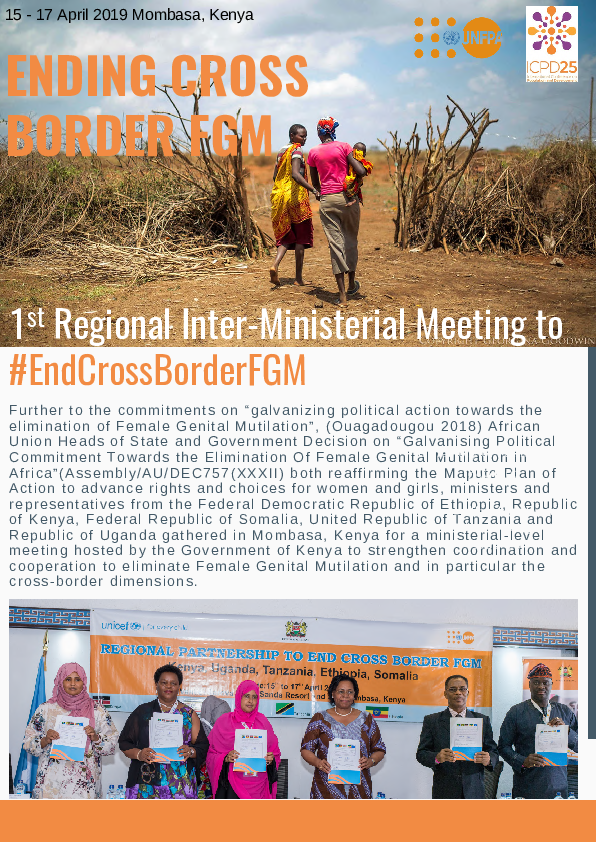
ENDING CROSS BORDER FGM
#ENDING CROSS BORDER FGM
Further to the commitments on “galvanizing political action towards the elimination of Female Genital Mutilation”, (Ouagadougou 2018) African Union Heads of State and Government Decision on “Galvanising Political Commitment Towards the Elimination Of Female Genital Mutilation in Africa”(Assembly/AU/DEC757(XXXII) both reaffirming the Maputo Plan of Action to advance rights and choices for women and girls, ministers and representatives from the Federal Democratic Republic of Ethiopia, Republic of Kenya, Federal Republic of Somalia, United Republic of Tanzania and
Republic of Uganda gathered in Mombasa, Kenya for a ministerial-level meeting hosted by the Government of Kenya to strengthen coordination and cooperation to eliminate Female Genital Mutilation and in particular the cross-border dimensions
Kenya Parliamentary Retreat Newsletter
Without a doubt, 2019 was a defining year for UNFPA Kenya. This the year where UNFPA footprints were firmly on the ground in Kenya. It was indeed the year where the Country Office's activities took on a sharper trajectory, not only in terms of real impact among communities, but also in visibility among bilateral and multilateral partners, spreading to the parliamentary collaborations.
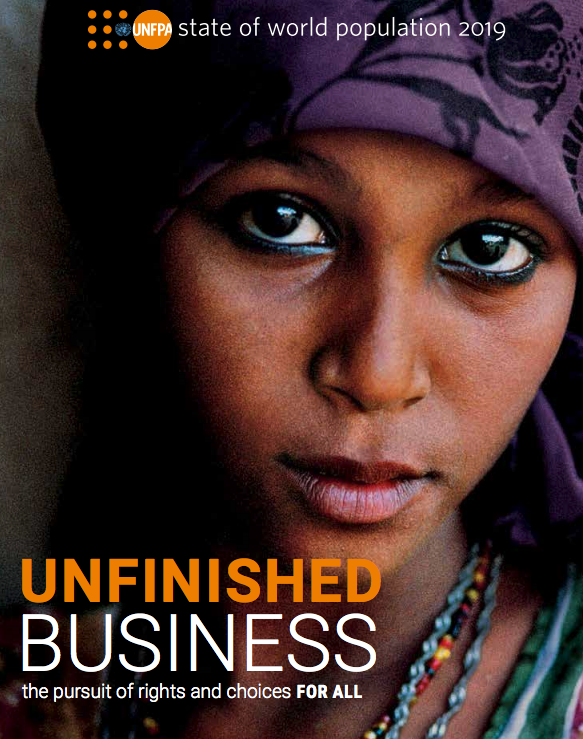
State of World Population 2019
Fifty years ago, it was hard for women to obtain contraception and relatively easy to die giving birth. Many women were unable to decide whom and when to marry, and when or whether to have children.
A worldwide movement to give women real choices in life culminated in the 1994 International Conference on Population and Development (ICPD), where a consensus was reached about the links between women’s empowerment, sexual and reproductive health, and rights and sustainable development.
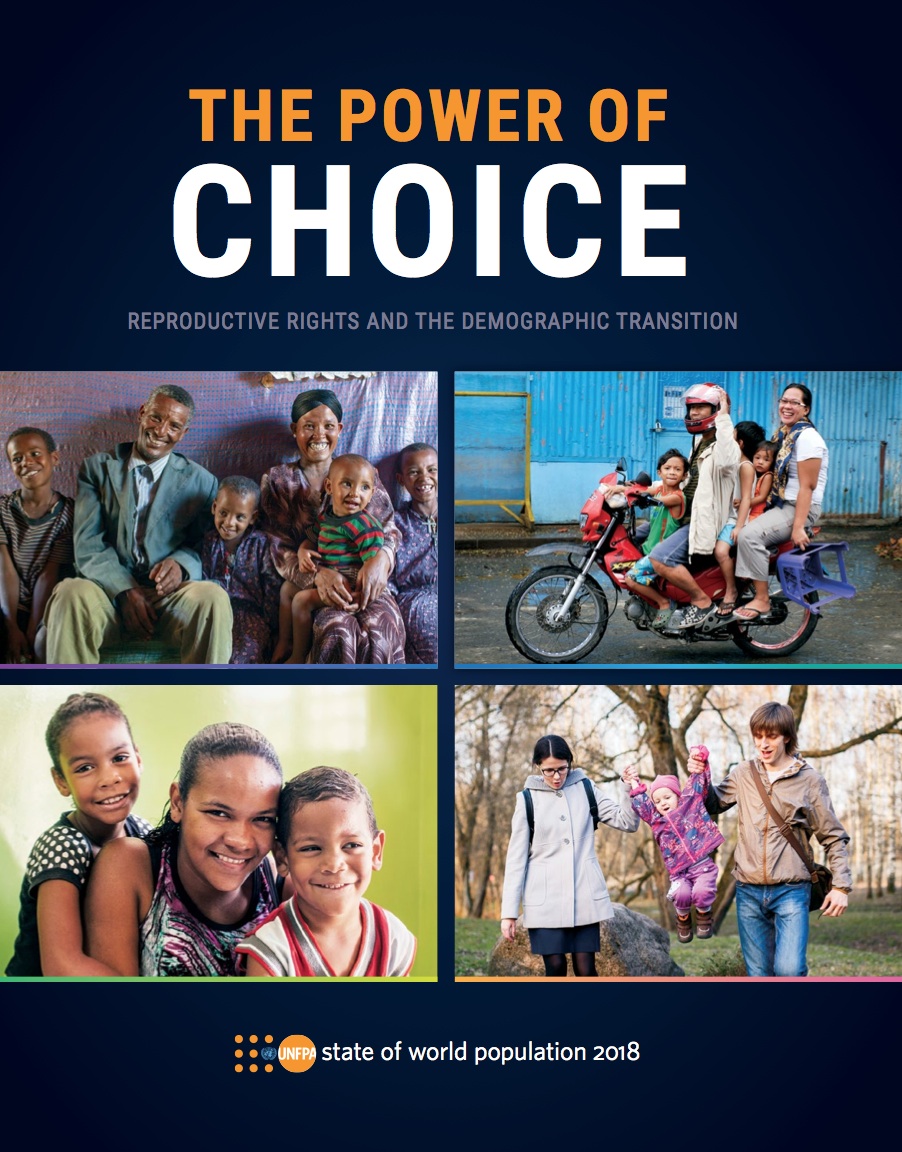
The Power Of Choice Reproductive Rights and The Demographic Transition
CHOICE CAN CHANGE THE WORLD. It can rapidly improve the well-being of women and girls, transform families and societies, and accelerate global development.
The Power of Choice: Reproductive Rights and the Demographic Transition
Not so long ago, most people had large families: five children, on average. Where once there was one global fertility rate, today there are many, with differences wider than at any point in human history.
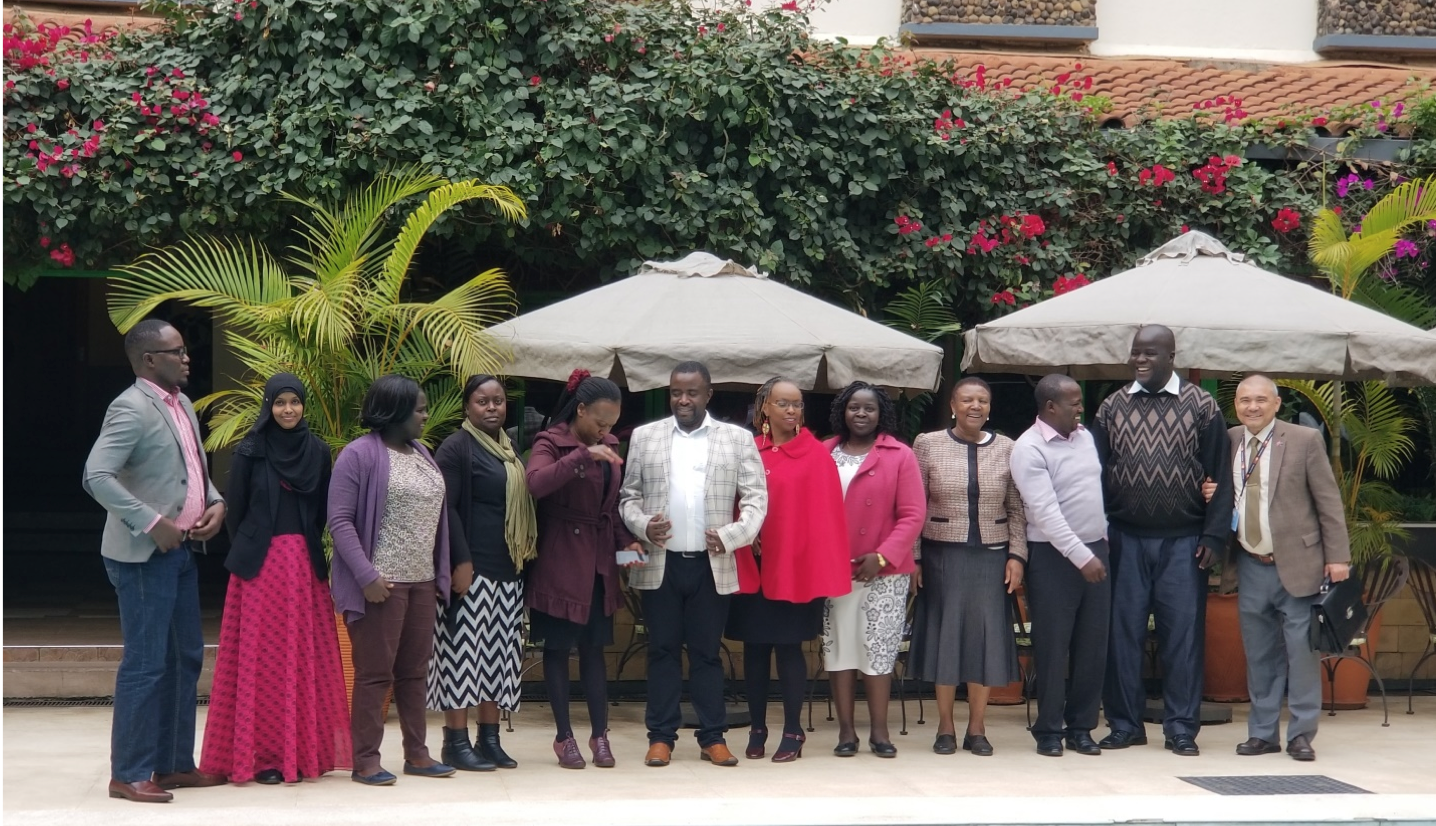
Kenya Lays Foundation for Minimum Initial Service Package
Kenya experiences cyclic natural disasters and emergencies attributed to natural and man-made triggers. Natural disasters have included epidemics, droughts, floods, landslides, and human and animal disease outbreaks, among others.
To prevent and mitigate disastrous effects when emergencies and disaster occurs in future, UNFPA collaborated with the Government of Kenya, UN agencies, NGOs and other actors in the humanitarian sector and undertaken a Minimum Initial Service Package (MISP) Readiness Assessment based on 38 indicators...
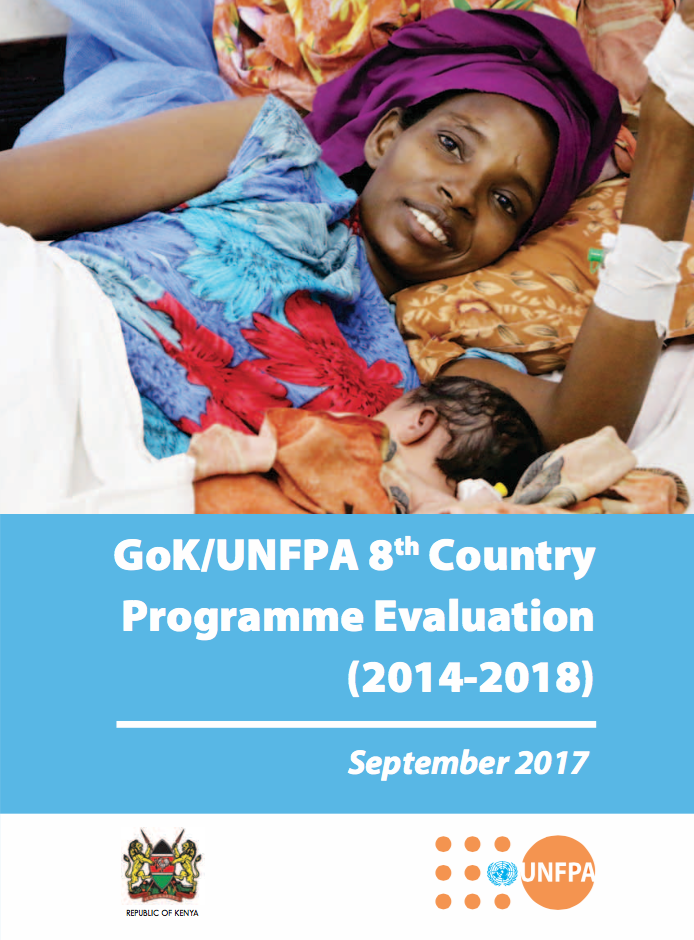
GoK/UNFPA 8th Country Programme Evaluation (2014-2018)
Findings of the GoK/UNFPA 8th Country Programme Evaluation (2014-2018) report principally provides the basis for evidence-informed decision making to guide the formulation of the 9th country programme.
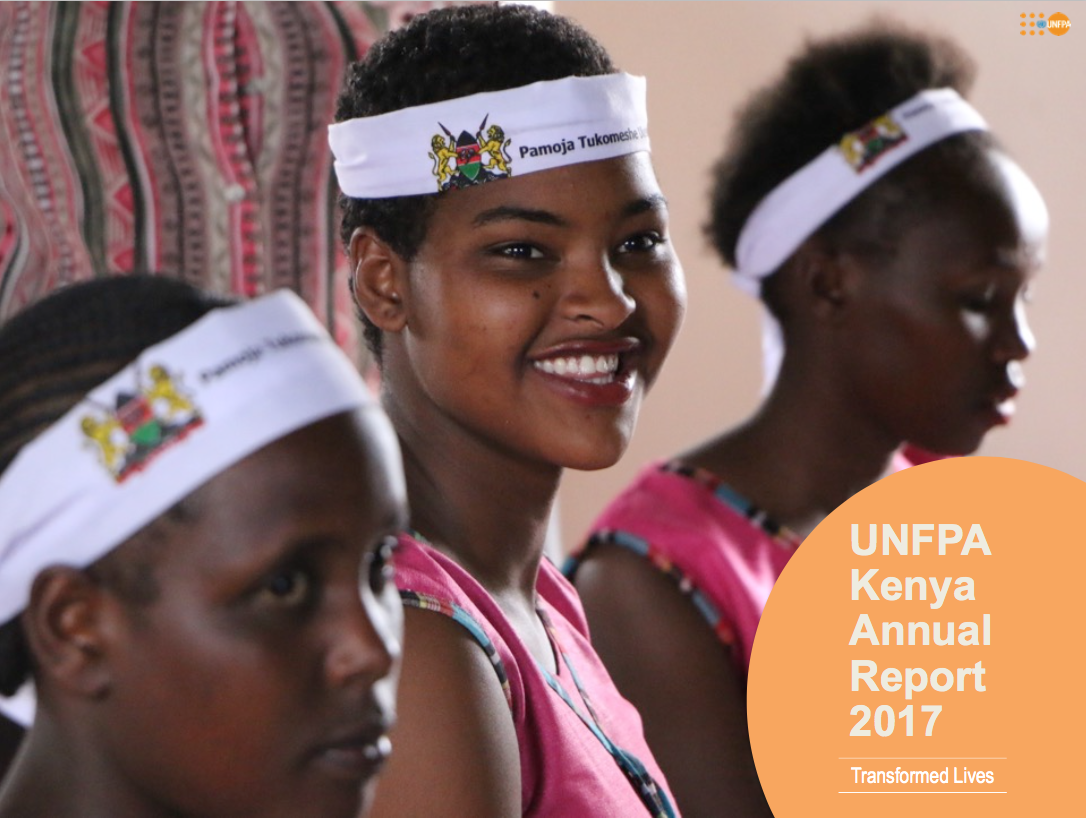
UNFPA Kenya Annual Report 2017 - Transformed Lives
Our efforts have significantly contributed to the upholding of our principle of “Leaving No One Behind” and contributing to the expansion of possibilities for women and young people in Kenya to lead healthy and productive lives.”